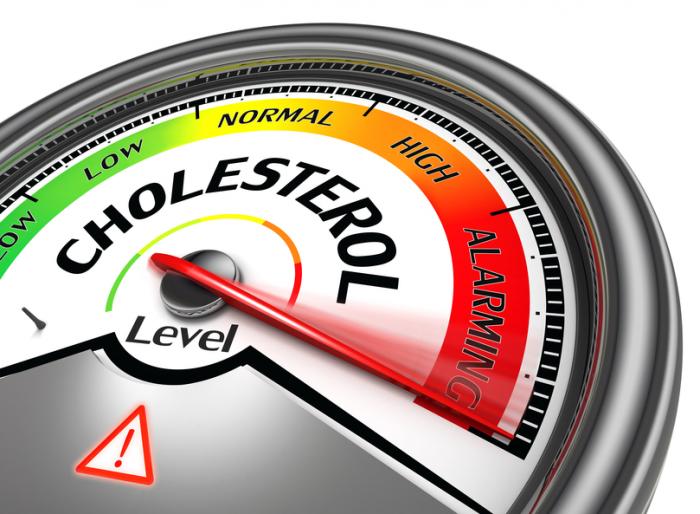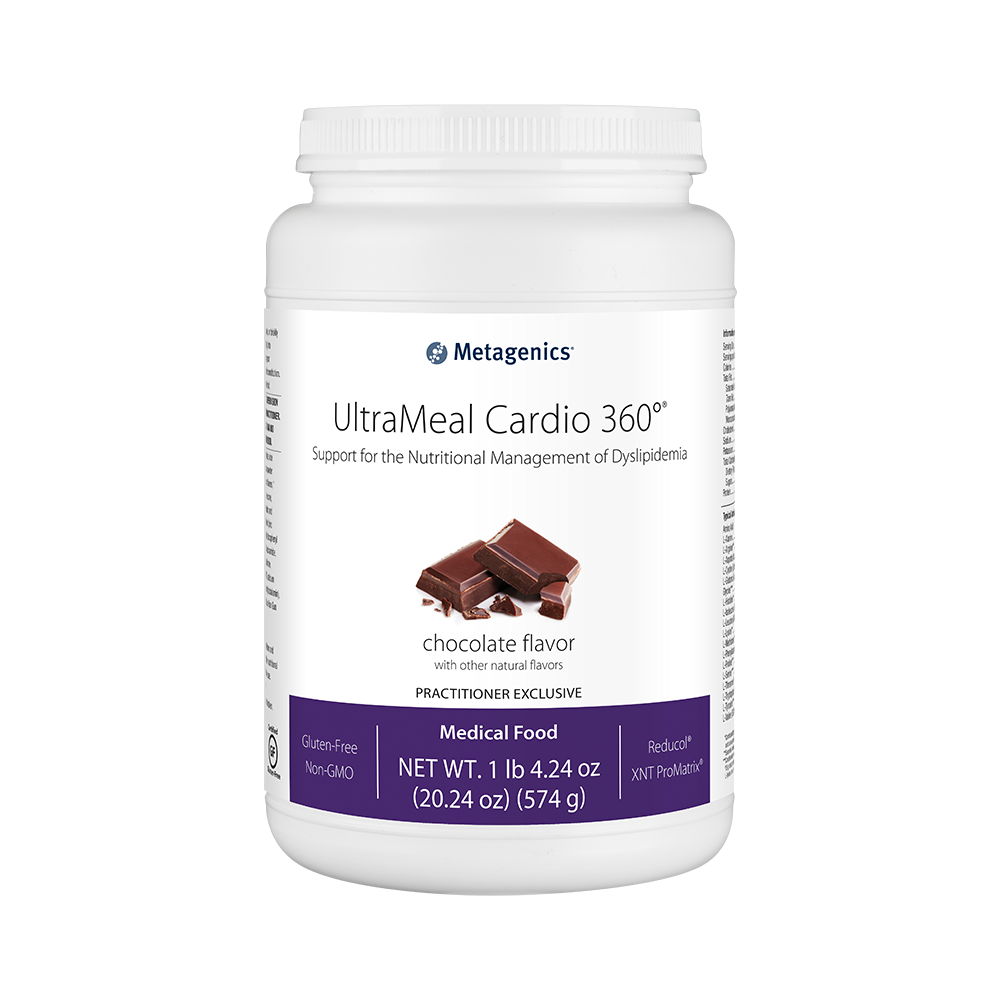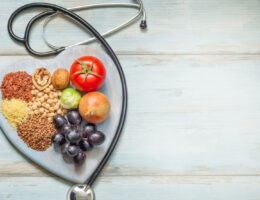Last updated on May 23rd, 2023 at 11:19 am
We’re continuing our medical foods series with a focus on High Cholesterol otherwise known as Dyslipidemia. (If you missed “Medical Foods Part 1” feel free to jump back and take a read. Dyslipidemia is a big word that simply means there is elevated total cholesterol or low-density lipoprotein (LDL) which is the bad type of cholesterol.
High-density lipoprotein (HDL) cholesterol levels (this is the good kind) can be low, and the concentrations of other lipids and apolipoproteins can also be abnormal.1-4 Dyslipidemia contributes to the development of atherosclerosis which is a hardening of the arteries and is an important risk factor for coronary heart disease (CHD) and stroke. It can also cause peripheral artery disease which reduces blood flow usually in the legs causing damage and potentially stroke.
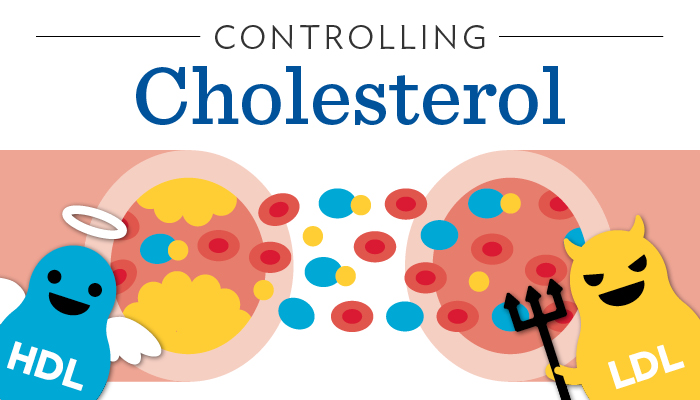
What is Cholesterol?
Before we go any further what is Cholesterol anyway? From our friends at the Mayo Clinic Cholesterol is a waxy substance found in your blood. Your body needs cholesterol to build healthy cells, but high levels of cholesterol can increase your risk of heart disease. With high cholesterol, you can develop fatty deposits in your blood vessels. Eventually, these deposits grow, making it difficult for enough blood to flow through your arteries. Sometimes, those deposits can break suddenly and form a clot that causes a heart attack or stroke. High cholesterol can be inherited, but it’s often the result of unhealthy lifestyle choices, which make it preventable and treatable.5
What types of cholesterol are there?
- LDL cholesterol is considered bad because it can cause plaques to form in the blood vessels.
- HDL cholesterol is regarded as good because it can help to remove LDL from the blood.
- Triglycerides develop when calories are not burned right away and are stored in fat cells.
So what cholesterol levels are we shooting for?
The most common goals are as follows but please work with your doctor on your personal targets as each person can have different risk factors:
- Total cholesterol: Below 200 mg/dL
- HDL cholesterol: Men – above 40 mg/dL; Women – above 50 mg/dL
- LDL cholesterol: Below 100 mg/dL; Below 70 mg/dL for people with diabetes or heart disease.
- Triglycerides: Below 150 mg/dL
Types and Causes of High Cholesterol (Dyslipidemia)
Usually, the types are broken down into primary types which are genetic and inherited. Secondary types are usually lifestyle factors or other medical conditions that can contribute negatively to Dyslipidemia.
Primary Types:
- Familial combined hyperlipidemia develops in teenagers and young adults and can lead to high cholesterol.
- Familial hyperapobetalipoproteinemia, a mutation in a group of LDL lipoproteins called apolipoproteins.
- Familial hypertriglyceridemia leads to high triglyceride levels.
- Homozygous familial or polygenic hypercholesterolemia, a mutation in LDL receptors.
Secondary Types:
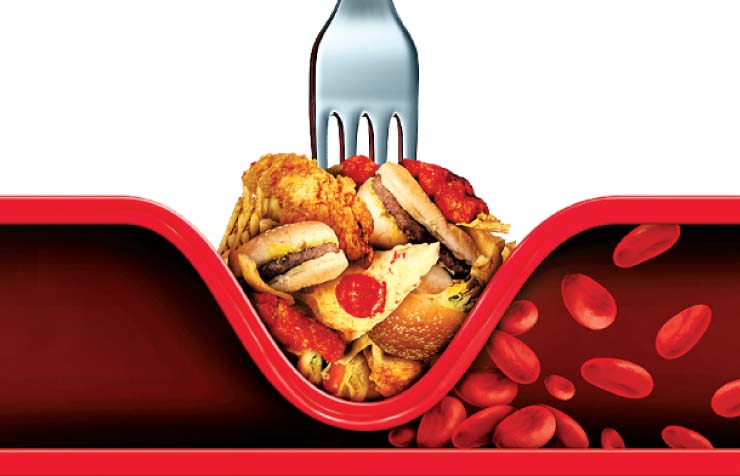
- obesity, especially excess weight around the waist
- diabetes
- hypothyroidism
- alcohol use disorder (alcoholism)
- polycystic ovary syndrome
- metabolic syndrome
- excessive consumption of fats, especially saturated and trans fats
- Cushing’s syndrome
- inflammatory bowel disease, commonly known as IBS
- severe infections, such as HIV
- an abdominal aortic aneurysm
High Cholesterol Treatments
Your doctor will usually focus on lowering your LDL or Triglycerides and treatment can vary based on severity and other conditions unique to you. Statins are usually prescribed which interfere with the production of cholesterol in the liver. Additional medications may also be used.
Natural Cholesterol Reduction Treatments Include:
- medical foods
- reducing the consumption of unhealthy fats, such as those found in red meats, full-fat dairy products, refined carbohydrates, chocolate, chips, and fried foods
- exercising regularly
- maintaining healthy body weight, by losing weight if necessary
- reducing or avoiding alcohol consumption
- quitting smoking and other use of tobacco products
- avoiding sitting for long periods of time
- increasing consumption of healthy polyunsaturated fats, such as those found in nuts, seeds, legumes, fish, whole grains, and olive oil
- eating plenty of dietary fiber from whole fruits, vegetables, and whole grains
- getting at least 6– 8 hours of sleep a night
- drinking plenty of water
- taking omega-3 oil, either as a liquid or in capsules (We suggest the Omega Pure line of fish oil from Nutridyn – see below)
Nutridyn Omega Pure EPA-DHA Fish Oil Options:
| 300 (270 Count) | EPA = 360mg | DHA = 240mg | Other = 100mg |
| 600+ (120 Count) | EPA = 800mg | DHA = 400mg |
| 720 (120 or 240) | EPA = 860mg | DHA = 580mg | Other = 160mg |
| 1000 (120 Count) | EPA = 730mg | DHA = 270mg | Other = 100mg |
| 2400 (Liquid – 150mL) | EPA = 1,410mg | DHA = 990mg | Other = 400mg |
Medical Foods To Reduce High Cholesterol
So where do medical foods come in? Medical foods one of the natural treatments that may help with High Cholesterol. Please make sure you are working with your doctor (our Dr. Jamy’s a great one too) on whatever steps you’re taking to address your health conditions. There are many ways medical foods can do this but one way is with plant sterols/stanols which have been shown in studies to lower LDL concentrations by 5-15%.6 Metagenics makes a specific medical food for Dyslipidemia:
Metagenics UltraMeal Cardio 360 Pea and Rice by Metagenics
UltraMeal Cardio 360 Pea and Rice by Metagenics is a medical food formulated to provide specialized nutritional support within a nutritional management program for dyslipidemia by supplying a combination of phytosterols, bioavailable xanthohumol from hops (XNT ProMatrix®), beneficial macronutrient profile, 5 g of prebiotic isomalto-oligosaccharides, antioxidant nutrients (vitamins C and E), and a proprietary pea/rice protein base with added amino acids. As part of a heart-healthy eating plan, the addition of 1.8 g/day of plant sterols/stanols has been shown to lead to beneficial changes in LDL cholesterol in individuals with hypercholesterolemia.
Additional Flavors: Chocolate | Vanilla
Additional Considerations:
Other supplements such as red yeast rice and plant sterols may also support and regulate cholesterol levels. You might consider one of the following supplements with your nutritional practitioner:
- Metagenics Lipotain – 60 Tablets
- Metagenics Coratin – 60 Tablets
- Nutridyn Cardio Essentials Cholestin Support
- Pure Encapsulations CholestePure Plus II
- Douglas Labs Cardio Edge – 120 Capsules
NOTHING IN THIS WEBSITE IS INTENDED AS, OR SHOULD BE CONSTRUED AS, MEDICAL ADVICE. ANY HEALTHCARE AND/OR NUTRITIONAL MATERIAL CONTAINED IN THIS WEBSITE IS FOR CONSUMER INFORMATIONAL AND EDUCATIONAL PURPOSES ONLY. SUCH MATERIAL IS NOT INTENDED AS MEDICAL ADVICE FOR CONDITIONS OR TREATMENT, NOR IS IT INTENDED AS A SUBSTITUTE FOR A MEDICAL EXAMINATION BY A HEALTHCARE PROFESSIONAL. CONSUMERS SHOULD CONSULT THEIR OWN HEALTH CARE PROFESSIONALS FOR INDIVIDUAL MEDICAL RECOMMENDATIONS.
References
- Stone NJ et al. J Am Coll Cardiol. 2014;63(25 Pt B):2889-934.
- Goff DC et al. J Am Coll Cardiol. 2014;63(25 Pt B):2935-59.
- Anderson et al. Canadian Journal of Cardiology. 2016;32:1263e1282.
- Jellinger PS et al. Endocr Pract. 2017;23(4):479-497.
- Mayo Clinic
- Food Nutr Res. 2008; 52: 10.3402/fnr.v52i0.1811.
- Magnesium Threonate: An Honest Buying Guide for Health Enthusiasts - March 21, 2024
- Magnesium Citrate Vs Glycinate: 5 Key Differences And Benefits - March 14, 2024
- How to Pick the Best Magnesium Glycinate Supplement for You - March 7, 2024
